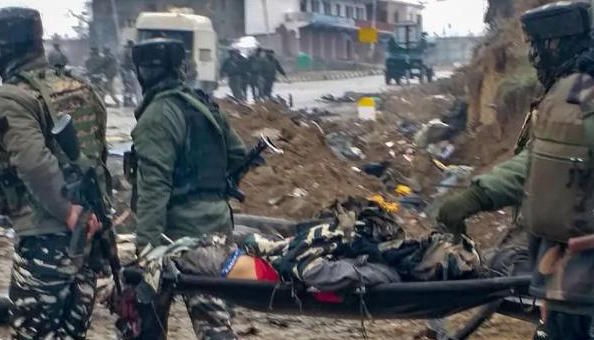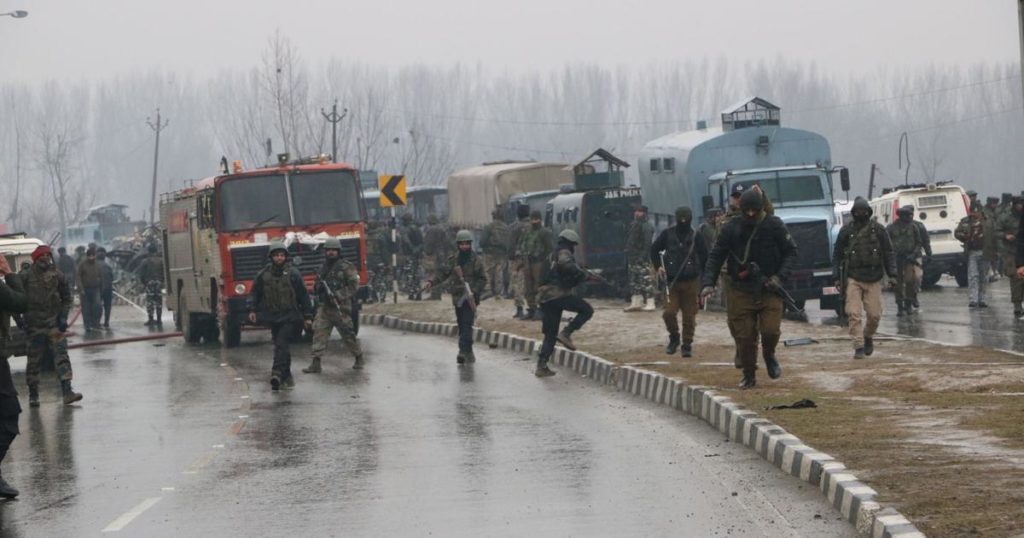India grieves loss of 40 soldiers in terror attack
By Vijay Badhwar from Delhi

Normally full-of-life (even chaotic) Delhi is all shuttered down today on February 18, four days after one of the worst terror attacks in India. This is to express public solidarity and a clarion call against terrorism that is affecting all humanity.
The Central Reserve Police Force (CRPF) lost 40 of its soldiers in a suicide bomber’s despicable ambush in broad daylight in Pulwama on Jammu-Kashmir Highway on February 14.
A large convoy of nearly 2500 soldiers in 78 vehicles was being deployed in the region as their movement was earlier restricted due to heavy snow in the area.

A Scorpio SUV laden with an estimated 15-20 kg of RDX is suspected to have suddenly appeared from a side road in Lethpora village and hit the belly of the convoy reducing the bus with BSF soldiers to a mangled mess.
The convoy also came under attack from firing but the security personnel immediately took positions to surround the area.
Jaish-e-Mohammad claimed responsibility for the terror attack. This was an escalation of its activities in the Valley, suddenly buoyant by Taliban’s success in Afghanistan that entered into direct talks with US government.
Before the terror incident the security forces were claiming a successful 2018 as it had managed to eliminate some of the most wanted terrorists in the area. But in the latest VBIED attack BSF lost more soldiers on a single day than during the whole of last year.
The Indian Government, so close to the elections, did not have many options. Although the Prime Minister and all prominent leaders promised to avenge every drop of blood lost, prudently it could not indulge in hasty decisions.
The Government declared to remove all restraints from defence forces in their war against terror, removed the ‘Special Trade Status’ accorded to Pakistan and increase import duty on Pakistani goods.
Besides the soft but loud rhetorics, the real action was declared on February 17 to remove provision of government security to political leaders who were seen to be siding with the Separatist elements in the Valley.
Extremism is more prominent in the southern part of Kashmir, in areas such as Pulwama, as it is silently encouraged by some political leaders, J&K Governor, Satya Pal Malik, acquiesced.
The Government directed all its diplomacy to mobilise world opinion against terrorism, especially focussing on neighbouring Pakistan who is harbouring Jaish’s chief Masood Azhar.
The world leaders were with India – Australia, US, UK, France, Israel, Nepal, Sri Lanka and Bangladesh, all joining in India’s call to rid the world of terrorism.
Hawkish US National Security Advisor John Bolton was unrestrained with Indian NSA Ajit Doval in his support for India’s “right to self defence” against terrorism.
Masood Azhar is protected by China’s lone veto in the Security Council from being declared an international terrorist and has the backing of the ISI. India has time and again provided inrefutable evidence of his involvement in the 2001 Parliament attack that brought India on the brink of war with Pakistan but to no avail.
Since his release from prison in Kashmir as an exchange for hijacked Indian Airlines plane and its passengers in 1999, Azhar has been a thorn in India’s psyche. Accompanied by none other than India’s Foreign Minister at the time, Jaswant Singh, to Kabul to negotiate release, India laments the weak handling of the hijacking.
Amidst the widespread pain and rage felt by most Indians and their call for a strong action to avenge the soldiers’ martyrdom, I, (in India at the time and having to cancel a holiday trip to Lahore), was anguished when a Muslim TV repairer raised with me the possibility, being discussed among his community, whether the whole incident was staged by the BJP Government!
Short URL: https://indiandownunder.com.au/?p=12612
